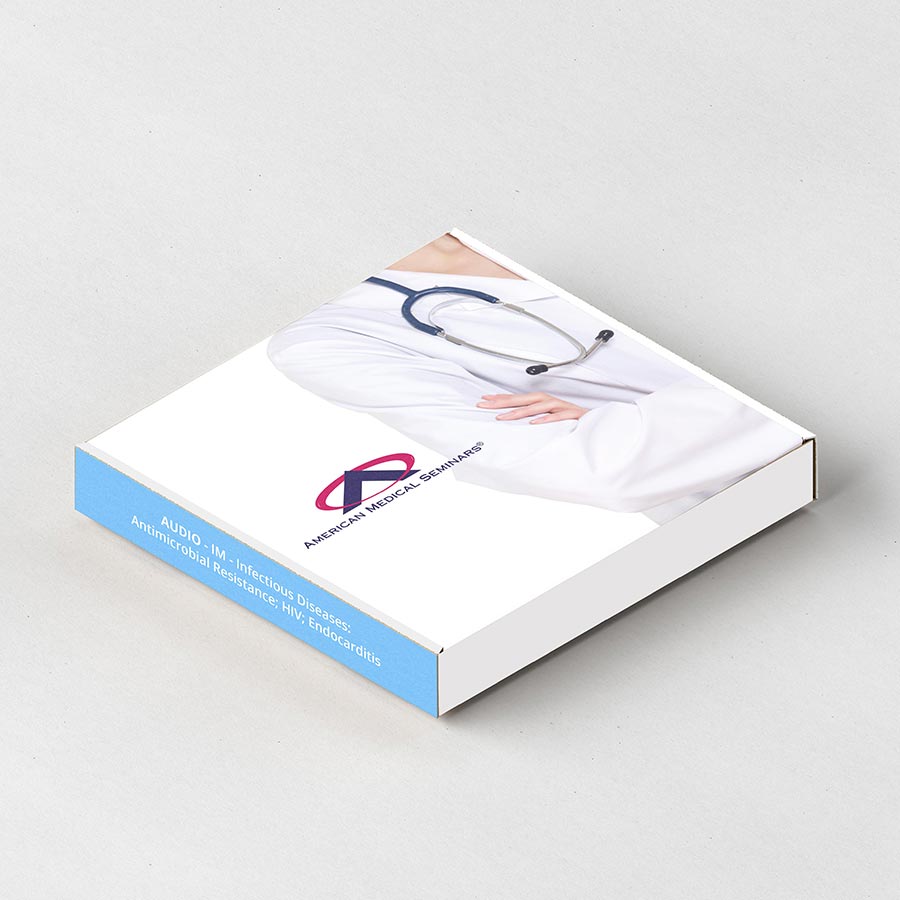Product Description
Title: Internal Medicine – Infectious Diseases: Antimicrobial Resistance; HIV; Endocarditis
Faculty: Keith S. Kaye, M.D., M.P.H.; Kenneth Kaye, M.D., F.A.C.P.; and Jerry Zuckerman, M.D.
Original Release Date: July 1, 2016 Review Date: July 1, 2017 Expiration Date: July 1, 2019
TOPIC 1: Update on Antimicrobial Resistance.
Upon completion of this session, using IDSA and SHEA evidence-based guidelines and CDC and WHO surveys, the participant should be able to: EBM, GL, COMP
- Interpret the pattern of emergence of resistance of certain infecting bacteria.
- Analyze the epidemiology that may indicate potential resistance among the organisms discussed, such as:
- Pneumococci;
- Enterococci;
- Gram negative bacilli.
- Use current therapeutic regimens while considering resistance.
TOPIC 2:HIV Primer for the Primary Care Physician.
Using recommendations and evidence-based guidelines from IDSA, HIVMA, USPHS, CDC and ACP, upon completion of this session, the participant should be able to: EBM, GL, COMP
- Relate the latest epidemiology of HIV infection.
- Interpret recommendations for HIV screening.
- Interpret diagnostic tests (e.g. viral load, CD4 count) and apply them to HIV management.
- Illustrate the principles of antiretroviral treatment.
TOPIC 3: Endocarditis and Orthopedic Device Infection Prophylaxis Guidelines: What the PCP Needs to Know.
Upon completion of this session, using evidence- based guidelines from the AHA, ADA, AAOS and AUA, the participant should be able to: EBM, GL, COMP
- Apply current recommendations for antibiotic prophylaxis of endocarditis and prosthetic joints.
- Illustrate data supporting prophylaxis.
- Determine appropriate patients for prophylaxis.
- Use proper administration of prophylactic antibiotics, including prophylaxis in the allergic patient.
- The receipt for any incentive-associated purchase will designate the value of the gift card separately from the cost of the learning activity.
- This incentive may have implications on your tax reporting obligations. Any reimbursed amount must be declared as personal income for tax purposes.


